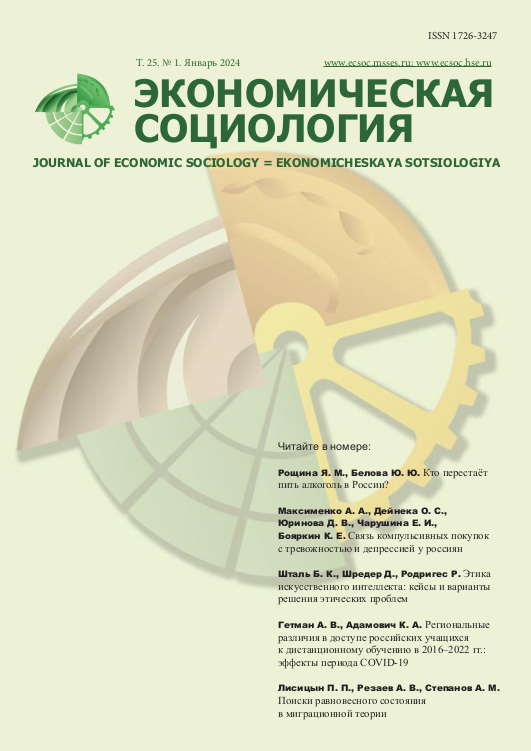“Performative Decisions in Conditions of Systemic Uncertainty”: How the US Federal Reserve Solved the Crisis During the Global Financial Crisis of 2007-2008
Book Review: Abolafia M. Y. (2020) Stewards of the Market: How the Federal Reserve Made Sense of the Financial Crisis, Cambridge, MA: Harvard University Press. 224 p
Abstract
Mitchell Abolafia's book offers an in-depth analysis of the famous Global Financial Crisis of 20072008. The book examines how the critical decisions made by officials of the US Federal Reserve System affected the operation of markets, the understanding of its participants of the full depth of the crisis, and the search for a way out of the current problem. The book delves into the history of the meetings of the Federal Open Market Committee (FOMC) and the US Federal Reserve, at which its permanent representatives tried to anticipate the conditions of the impending financial crisis and find a favorable solution. A systematic analysis of the ethnographic materials collected by Abolafia allows the reader to trace how the “managed” exit from the crisis was carried out by “market managers”, and how this process ultimately turned out to be deeply political, social and cultural. The book places a significant emphasis on the process of “searching for solutions,” which is defined by M. Abolafia as “sensemaking.” It is this, coupled with the mechanisms for creating and reproducing performative conclusions and decisions, that characterizes how the FOMC had from the very beginning to find new solutions to a situation that at first was considered as typical, based on the experience of past financial crises. The book pays special attention to mechanisms for coping with uncertainty, formulated in terms of “improvisation,” something that becomes uncharacteristic of the FOMC. In general, the book focuses on the logic of understanding of the market situation, the role of “signals” and “effects,” and the development of a system of argumentation by officials when making decisions. The main conclusion of the book is that the technocratic control that was traced in the work of the FOMC, over a number of events and “behind-the-scenes” actions, was largely ambivalent in nature, since the FOMC experts did not have a factual understanding of the financial crisis. The book argues that stable cultural patterns served as interpretations of economic changes, which in turn slowed down the process of rapid response. Thus, the successful navigation of the crisis and the implementation of positive policy measures were possible thanks to the overcoming by the members of the FOMC and the Federal Reserve of their entrenched ideas about the economy, as well as their willingness to respond to market expectations.













